|
I visited Israel in May 2024, yes during the current war. We visited the Nova festival site, and Kfar Aza, a kibbutz attacked on October 7. I could have kicked a footy into no-man's land from where we stood. And yes we heard live rounds, rockets & rumbles. We saw and heard evidences of what happened. But to understand that day and this war requires more context. That context is bigger than Oct7, includes centuries before 1948, and is literally of Biblical proportions. I'm still digesting what to say theologically and pragmatically. But meanwhile I can offer these:
1) A good list addressing many of the common myths & memes about Israel & Palestine. 2) If one side stopped shooting, the war could end tomorrow. Only one side has and would do that, and that tells us a lot about the ideologies. 3) Christians do care about Gazans' suffering from the many evils attacking them. Ultimately it will only be the Way, Work & Person of Jesus who can fix this region properly, both spiritually & practically. 4) Christians must also care about Jews, and Jerusalem coming to faith in the Messiah. Just as Israel has blessed us Gentiles with the knowledge of God & the Messiah, so we are to bless them in kind, that they may return to Him - and only when welcomed will He return to them, as He said, "For I tell you, you [Jerusalem] will not see me again until you [Jerusalem] say, ‘Blessed is he who comes in the name of the Lord.’" (Mt23:39) I'll return to this post with more info as I digest.
0 Comments
A great worldview article from James Macpherson: https://jamesmacpherson.substack.com/p/news-senator-payman-seeks-allahs Muslim Senator Fatima Payman has put religion back on the front page after revealing she asked Allah for guidance on what to do in the Senate.
The 29-year-old old West Australian broke ranks with her Labor colleagues this week to vote with the Greens in favour of Palestinian statehood. She was disciplined by the party (for breaking ranks, not for praying to Allah) and has since quit Labor to move to the crossbench. But the very idea that Payman sought wisdom from Allah before voting on policy issues has surprised many Australians who rarely give a second thought to religion. The fact is that no-one arrives at any issue values free. And we all have a religion - whether we believe in God or not. Your religion, or if you prefer your worldview, is in essence your answer to these five big questions …
A Christian, for instance, believes people are created in God’s image. With that worldview, it is impossible to agree that abortion is okay. An atheist, on the other hand, insists that human life is entirely accidental and no more imbued with the divine than a banana. Someone with that worldview might find abortion distasteful, but has no grounds to argue against it. In both instances, religion informs the policy position. So it’s redundant to ask whether politicians ought seek guidance from religion since they are already being guided by their religion, whether they realise it or not. The better question is which religion we would prefer our politicians to take their cues from. Senator Payman is a devout Muslim and so of course she would be taking her cues from Mohammad. Just as a Christian politician would seek wisdom from Jesus. So the question is whether you’d prefer your nation’s leaders getting their marching orders from Jesus or from Mohammad. On that question you don’t need a masters in comparative religion to work it out. Just take a quick look at the globe. Western nations - like the UK, the USA and Australia - are overwhelmingly built on a Judeo-Christian worldview. Middle Easter nations - like Iran, Iraq, Afghanistan and Saudi Arabia - have been built on an Islamic worldview. Which would you prefer? As Jesus said, by their fruits you shall know them. And let’s not forget our atheist friends who, consciously or not, take their cues from Nietzsche. Think Communist China or the former Soviet Union. So you can build a nation on the the law of love (Christianity), Sharia Law (Islam), or the law of the jungle (Atheism). Which would you be happiest with? Australia’s founders never imagined a country in which politicians were so arrogant that they made decisions without seeking wisdom from above. The preamble to the Constitution - written in 1901 - declares that Australia would be a nation “humbly relying on the blessing of Almighty God”. Notice it doesn’t say “humbly rely on the blessing of Almighty Allah”. If it did, we’d be more like Somalia than Australia. Fun times! Our forefathers envisaged political leaders who would be humble enough to acknowledge a power higher than themselves and to ask for wisdom. And they assumed the higher power would be the Christian God since, in 1901, there was virtually zero disagreement. A lot of people complain that our country is not what it used to be, that it has changed, and not for the better. I don’t disagree. A lot of people are also waking up to the fact that the chance in our nation is not just economic and not just social. Even non-church going people are starting to be open to the idea that we may in fact have a spiritual problem. Again, I don’t disagree. Our politicians stopped seeking wisdom from almighty God and instead - like a sailor who stopped believing in the stars and so tied a lamp to the mast of his boat and navigated by that - have done what is right in their own eyes. The results have been disastrous. There is only one way for Australia to regain its prosperity and its freedom. We need Prime Ministers, business leaders, educators and parents to once more humbly rely on the blessings of Almighty God. And I don’t mean Allah. Update July 8, 2024: James Macpherson says it simpler:
https://jamesmacpherson.substack.com/p/news-senator-payman-seeks-allahs Every politician has a worldview. The only question is which one do we want as our guiding star? I wrote this response to articles in The Weekend Australian (2/3/2024) addressing the problem of Australia’s lack of a common reference point. Well done Paul Kelly and Greg Sheridan for raising this core issue which Australian public discourse has been avoiding since WW2: what is Australia’s agreed reference point - for legislation and politics, public life, and private enterprise? They wrote that our lack of this reference point results in fragmentation, culture wars, victim-entitlement, and a lack of investment confidence. I agree. But let’s take the next step and identify the most obvious solution. Somebody has to say it: let’s officially nominate the Bible as Australia‘s reference point for national policy. Make it our moral compass when deciding laws, values, government processes. Morality is what societies’ laws are all about - what’s good & bad, allowable & not. But which moral set are we using? And why that set? There is a stronger case for the Bible than for any other moral code.
How about a referendum on that!  The Uluru Statement from the Heart calls for Makarrata. So what is it, and what hope does it give for the future of Australia? Makarrata can be used in a bait and switch way to punish invaders. The bait is to define the word as "peace after a dispute," but the switch is to discover it's fuller meaning is that of violent payback. Makarrata literally means, "spear penetrating." According to the ABC's explainer, "Makarrata literally means a spear penetrating, usually the thigh, of a person that has done wrong… so that they cannot hunt anymore, that they cannot walk properly, that they cannot run properly; to maim them, to settle them down, to calm them — that's Makarrata." A crippling blow to subdue the criminal conduct. If this is what is being asked by the Uluru Statement, then that's quite an alarming switch we need to be wary of. A profound danger for the future of reconciliation in Australia. But wait. There is more to Makarrata, which actually has profound promise for the future. As my dearly departed Aboriginal Elder mate Ron Williams told me, within Aboriginal law, in such "spear penetrating" situations, a substitution can be made. If an uncle steps forward to offer his own thigh be speared on behalf of the offender, the offender can be reconciled to the tribe by the spearing of the substitute. The shedding of the uncle's blood reconciles the offender. If you haven't already noticed - that is exactly what we need! There is no way that people today can atone for the wrongs done by people of the past to other people of the past. Yet a debt must be paid. It can only be paid by a substitute for the people of the past. And that substitute must be good, preferably having no guilt of his own to atone for, yet be willing to pay the price in full for the offender. And we have such a substitute. Only one. Yet the perfect substitute. It turns out he already has paid Makarrata, for us, and paid it in full. Literally a "spear penetrating" into his side, and blood and water flowed that proved he had made the ultimate sacrifice of death. As a substitute. On behalf of... us. You, me, "them," everybody. Not just for crimes against indigenous peoples, but for crimes against non-indigenous too. Not just for our crimes against other people, but for our crimes against the Great Creator of all things! Who could be such a worthy sacrifice for that, but God himself in the flesh? This once-for-all Makarrata substitute introduces into our current debates the one thing necessary, yet mostly excluded: the one way to forgiveness. Mutual, true, heartfelt forgiveness. Because the Makarrata has been paid in full. By no less than the Great Creator Spirit in Person. Let that penetrate your mind. And then your heart. And then awaken your soul. It takes humility to realise that we are guilty of crimes requiring Makarrata. It takes humility to repent from them. And yet more humility to accept that we can't make amends ourselves and never can, the offence is too great - that we are totally dependent on a substitute. It takes humility to realise that when the substitute has already paid in full, I can no longer exact revenge from the offenders. In this case, humility is needed all round. Humility also to learn whether this Makarrata actually happened in fact - if you're ready, look here. Because substitutionary Makarrata is the only way to the "peace after a dispute" that Australia really needs. Here is an excellent review of the movie Oppenheimer. I haven't even seen the movie, I'm not even advocating you see it either, it's not family friendly including some gratuitous sex scenes apparently. So why am I recommending this review?
Because the review names some very important questions that need answering about immanent dangers in our own time, like AI and biotech, and more importantly whether we can or will listen to wisdom from minority voices, rather than simply cancel them. Same with any big issues, like referendums. It's better to get all the facts & ideas on the table... Here, look, just read: Two Lessons from Oppenheimer | Evolution News A current case of cancelling a needed view: ending Child Slavery requires open conversation about the facts, yet some players in Hollywood have resisted the release of the movie Sound Of Freedom by Angel Studios (The Chosen), labelling it 'controversial.' Ha! I'm booking my tickets to this one: Sound of Freedom - Daily Declaration (canberradeclaration.org.au) It matters to a lot of people: about half of Aussies surveyed said the matter of science and evolution prevents them from taking the claims of Christianity seriously.
First let me caution anyone in that situation, don’t make creation timing the issue that determines your eternal destiny. The eternity-breaker is whether or not you trust the living God. There are other good & sufficient reasons to believe in and trust the Creator. Such as: . the manuscripts and archaeology of the Bible, which indicate it was reliably transmitted, and the prophecies and storyline within it which indicate a divine source. . the historicity of the life, death and resurrection of Jesus, the latter giving further evidence of the divine. So a supernatural creator is still evident even without addressing the timing issue. I used to be ambivalent about creation timing because I had those other anchor-points for trusting God through Jesus. Maybe that's why some Christians leave the timing question unanswered, or even settle on long-age interpretations, because they have other good foundations for their faith instead. However, for Aussies without any of those other anchor-points, it’s understandable that science and evolution is a problem, because what we read in Genesis 1 is so shockingly different from what most of us are taught in school about billions of years and evolution. So it is fair to ask, “which timing is right?” Let’s start with this: "it is reasonable to expect the Creator's Account to interpret ALL observations consistently.” I'll defend that, but for now I'm saying we should not have to discard the Bible in favour of simplistic assertions about what "the science says.” We should be able to research and uphold all the legitimate observations of both sciences and the Bible. Equally we agree that we cannot uphold all contradicting interpretations of those observations. Now when I finally did examine enough of the evidence (both Biblical and scientific), I found that when it comes to origins, most of us were not given some critical information:
So where can normal people like us find specific observations with interpretations that are Biblically consistent? I recommend creation.com. On closer inspection as an adult, contrary to what I was taught at school and most media outlets, I have found that Bible-based interpretations of origins involving special creation are more consistent with all the relevant observations than any naturalistic interpretation. After all, it's reasonable that The Creator’s Account would interpret ALL observations consistently. 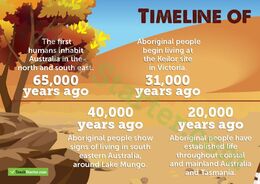 60,000 years? Over the last few years I have heard this so often, I decided to check it out. Every time Australian Aboriginal heritage is mentioned, it comes with the supposed fact that “The world’s oldest living culture has been here for 60,000 years!” It is said as fact. But is it a fact? Or just an interpretation? How do we know it's true? The 60,000 years is meant to imply nobility, resilience, and knowledge. Of course it doesn’t logically follow that just because a group has been here a long time, it demands they were good, bad, or indifferent, resilient or noble. Indeed there are some 300 Aboriginal nations across Australia, some better than others, so however long aboriginal peoples were here, it wasn't all unified... But today I am not questioning the implications of the 60k claim, but the claim itself. Partly because it cuts against the 6,000 year chronology of a plain reading of Genesis 1-11 (which, by the way, can successfully interpret every scientific observation ever made.) But moreover simply as a matter of questioning and probing the 60k claim itself. For such a claim to reach the status of “fact”, it must be verifiable, falsifiable, not based on circular assumptions. What I found is that the 60,000 year claim is not a fact but merely an interpretation, because: the claim is based on tests with interpretive assumptions; the claim ignores the only test with a measurable rate; the claim ignores the written historical records we have of human history. 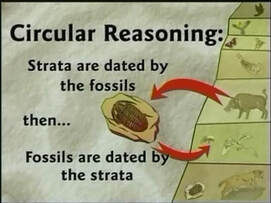 1) Interpretive Assumptions The list of evidence given to support the 60k claim appears strong at first, offering so many tests: Archaeology, ancient tools, rock art, burial sites, campfires in certain soil strata, geological changes, climate changes, mega-fauna extinction. But these are all based on cross-referencing each other, or circular reasoning. The way out of the circle is supposed to be Carbon-14 dating. But C14 dating itself is based on interpretive assumptions, such as the ratio of C14:12 at the start of the timeline, or that the C14:12 ratio is entirely based on radioactive decay, not other contamination or leaching, or carbon-capture event, such as a global Flood. Similar interpretive assumptions apply to Thermoluminescence, Electron-spin resonance. And Thorium-uranium and Protactinium-uranium tests likewise rely on interpretive assumptions about ratios not being affected by environmental factors as if it is a ‘closed system.’ https://creation.com/the-dating-game. creation.com/how-carbon-dating-works. creation.com/carbon-dating-fooling-whom. Mitachondrial DNA tests have had to be revised down too from 100,000 years to 50,000 years since that’s the upper limit of how long we can imagine DNA can survive. The truth must be much lower than that since DNA in sub-optimal conditions could not last that long. https://creation.com/was-adam-from-australia-the-mystery-of-mungo-man. But testing MtDNA is on the right track... 2) The One Test with a measurable rate - Ignored In 1998 Mitochondrial mutation rates were finally measured, and they mutate much faster than expected. Calculating at this measured rate, back in time to a point of perfection, yields an age of some 6,000 years. Why do you think this test is ignored, the only one with a measured rate? https://creation.com/a-shrinking-date-for-eve ; https://trueorigin.org/mitochondrialeve01.php 3) The Oldest Written Histories we have - Ignored The Biblical accounts are among the oldest written histories we have. Back to the times of the Pharaohs, and before to Ur, takes us to a historical date of around 2000 BC. And chrono-genealogies take us further to the time of Adam around 4000 BC. These historical documents have proven reliable archaeologically time and again. Why ignore them? https://creation.com/how-old-archaeology-conflicts-bible. Why would one prefer the results of dating methods based on assumptions and interpretations? I imagine for credence with one’s peers, I understand, but truth is not determined by social pressure. Why ignore dating methods with measurable rates, using verifiable observations? Is it just because they yield results that don’t fit the peer-narrative? https://creation.com/young-age-of-the-earth-universe-qa My interpretation of these observations is that 60,000 years is not a fact, it’s just an interpretation, ultimately based on self-serving assumptions. What’s your interpretation of the actual facts? And what foundation is it based upon? Update: 3 Feb 2024
Someone asked about Dendrochronology (tree rings) as a way of verifying C14, but this is caught in the same circular loop. https://creation.com/tree-ring-dating-dendrochronology. So my doubt about the basis of the 60k claim still stands. Is the Biblical 6000 years a recent invention? No, and I say that in light of the perspicuity of the text itself (creation.com/6000-years) [always wanted to use 'perspicuity' in public, now I have!], but also in light of more thorough reading of the past authors themselves, including Augustine. creation.com/old-earth-or-young-earth-belief To approach scientific observations with the Creator’s Account as your hypothesis is not anti-scientific, it’s a quick way to find good hypotheses to test, because we can expect the Creator’s Account to interpret all observations consistently. Such an interpretation should be the true goal of science. To approach scientific observations with long earth hypotheses is just as pre-deterministic as critics claim creationists are, but worse because it is based not on God’s Word but Man’s words. And it is a reductionist approach because it excludes data that hints at God because it hints at God (more circularity.) In other words, such a mindset is an atheistic stronghold. It is naive to think that this naturalistic ‘scientific method’ is altruistically self-correcting and open-minded, specifically when it comes to interpreting the past. creation.com/scientists-wrong . creation.com/its-not-science . As you can see, I’m now just the go-between for you and the search bar at creation.com. Cut out the middle man and take your further questions there. I find they reference more facts, with footnotes, and do so with more clarity about the difference between observations and interpretations, and more self-awareness of their own bias. Seek answers that interpret ALL the observations consistently, Biblical & scientific. My submission to Labor government's Communications Legislation Amendment (Combating Misinformation and Disinformation) Bill 2023 (Cth).
The proposed Combating Misinformation and Disinformation Bill must be withdrawn. I accept that we don’t want misinformation and lies being spread, but the alternative is worse. So it has always been. Yes, we don’t “want” lies propagated, it can be hurtful and misleading. But freedom of speech ensures that the truth will also be out there. 1. Worse than a plethora of lies, is the absence of truth. Suppressing freedom of speech not only suppresses lies but also truth. 2. Suppressing freedom of speech inevitably suppresses truth. Such suppressive power as in this bill allows abuse by powerful interests by becoming the arbiter of truth and lies - it is a powerful position, you can control the decisions and thus the outcomes. And so the law of the jungle ensues, and the one with the most power suppresses other narratives. Further abuses then flow from that, as every Nazi & Communist government’s propaganda department has proven. 3. Power-brokers will use such a Bill with its powers and sanctions to undermine democracy. They will manipulate the masses to accept only their narrative, inevitably leading to entrenching their power further, silencing dissenters (brutally and unjustly), and thus violating human rights. By this point government transparency has long gone, replaced with shadows in which abuse & suppression is justified in the name of ‘greater good.’ Have we not learnt from history! 4. Special-pleading that “our government wouldn’t abuse such powers” only belies a profound ignorance of human nature, and the need to safeguard against its love of power. 5. Reasons for freedom. Within a multicultural democracy, we need to allow freedom for very different worldviews to co-exist living according to different understandings of the truth, but also we must be clear about the reasons why we must allow such freedom. Here is why we must allow freedom of speech & dissent: - Pragmatically speaking: a) Freedom of expression lies at the heart of human freedom. If we don’t allow speech & expression to be free, we don’t allow people to live free, to live as they ought according to their best perception of reality. Moreover we impede their engagements with other viewpoints, which can help further refine their perceptions of reality. b) Free expression must concede that conflict must occur. As different truth-claims are made, conflicts will occur - so it must be, since the only alternative is to sacrifice freedom. And conflict per se is actually necessary, it’s a means of clarifying and learning. c) Hurt may arise from conflict, but hurt is a price of freedom amongst diversity. If conflict per se is not harm, nor is disagreement, nor is dissent, then any harm ensuing from conflict is not from conflict itself, but from the ways in which conflict is done. Thus we reject that disagreement or conflict or even hurt are valid reasons for suppressing freedom of speech. It is certainly not for the State to exclude peoples' freedom on the basis of mere hurt feelings. d) Harm must be carefully delineated from hurt. Harm comes from the ways in which conflict is handled, not conflict per se. Thus we may limit the ways we conflict, and police protect against bad ways. But we do not limit the content of the conflict itself. Indeed we have good and preferred ways to conflict well, productively, and to live with disagreements. We certainly do not suppress disagreements themselves. - Foundationally speaking: e) We must clearly safeguard the reasonable foundations of freedom of expression. Otherwise freedom becomes a cut flower doomed to wither without roots. The Judaeo-Christian tradition gave rise to freedom of dissent, human rights and dignity, free speech, and the Creator-referencing democracy that expressly allows participation in the state regardless of religion. Are there other worldviews that produce such freedoms? Safeguard those too. But be clear about them. f) Conversely we must name worldviews that rationalise the suppression of such freedoms. We should view them suspiciously, and they should certainly not be adopted by the very democracy they would threaten. Perhaps such a suspect worldview is held by the proponents of this Combating Misinformation and Disinformation Bill. The very freedoms they are using to propose it, are the same freedoms it threatens. Suppressing free speech as this bill would do, as if ‘the government’ knows the truth and the populace does not, is certain to suppress truth and freedom, and thereby grievously undermine our free democracy. Please, immediately withdraw and delete this Bill, and anything like it. Thank you. Geoff W Jan 2022 - Just after our second successful running of the Worldview Australia youth leadership camp, COVID19 vaccination restrictions took effect in WA, and the organisation under whose auspices Cheers began insisted that Cheers attendees be vaccinated. But our Cheers attendees were determined to maintain full respect for each others' decisions on the matter, and so, not wishing to impose one way, nor wishing to put the organisation at risk, Cheers people chose the third way - to step out from the organisation's auspices. (This turned out fortuitously for us in that we were unaffected by upheavals in that organisation a year later.) So Cheers was without an auspice, insurance, finances, governance, for about a year, while OAC Ministries examined whether we fit their criteria of an outreach and/or church ministry, and how auspicing us might work in practice. Since the community hall is not available to us without an organisational identity, we continued to meet in all-age gatherings at two homes. Bible-based, active learning, & relationships, continue well. During the year, we chose to not run a youth or kids program undertaking duty-of-care for minors, and this was opportune since most of our youth had just graduated into young-adulthood, and the few left were keen to check out other churches' youth groups. The young adults kept meeting and have seen some evangelistic fruit from their Bible-centred home meetings. Over summer they, with a larger group of peer volunteers, helped run the third annual Worldview Australia camp, and also the successful first term of Worldview Bites lectures, where again we have seen people shift from agnosticism to trusting Jesus. Praise the LORD. Thus 2022 was our only year without a family camp (apart from the 2020 covid lockdown), but April 22 fortuitously coincided with our daughter's wedding which meant we had our hands full anyway, and also provided a great celebration for Cheers people as well. The nexus between Cheers and Worldview developed further again this Easter, with the first ever Worldview Australia Family Camp, which was in fact a rework of our annual Cheers family camp, which had run annually under the auspices of our previous organisation since 2003. It was promoted as usual among those connected with Cheers, and followed our familiar format of input, rest and input. But it was also opened further to people around Worldview Australia, families of attendees and their connections. So the input aligned with the Worldview outline: "What we mean, How we know its true, and What Difference it makes," (but of course with less content & processes.) I provided that input in the morning with Core Stuff for kids, and family activities done together. In the evenings Darren & Kathryn Birch ran sessions from Nehemiah specifically about rebuilding families - & relationships in general. So Cheers Neighbours Network is set to come under the auspices of OAC Ministries, and continues to bear witness to Christ, as yet another way of doing and developing outreach and church ministries.
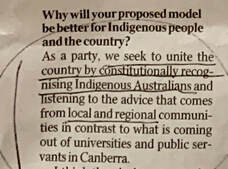 There are two questions in this referendum: 1) about constitutional recognition of Indigenous Australians, which is due; and 2) about a new national Voice mechanism. Part 1) already has bipartisan support. “As a party, we seek to unite the country by constitutionally recognising Indigenous Australians.” says Peter Dutton, (Weekend Australian 15 Apr 2023, p21 right.) [On the next page Peter Craven (ibid p22) gives a false premise by claiming, “the state of Australian politics now means you are for constitutional recognition or you’re against it.” That's clearly false. It's the divisive narrative, falsely casting opponents of the Voice mechanism as anti-recognition, even racist.] It's only part 2), the Voice, that does not have broad support. Warren Mundine makes that case (ibid p15 below). There are 150 plus aboriginal nations in Australia - who's voice will be represented in The Voice? And how can The Voice mechanism truly supersede existing processes when it promises to maintain the existing processes it claims don't work! Or do they actually work after all, in which case we don't need the Voice. If the Voice mechanism is a good idea, let it gain support on its own merits, not by forcing it into the constitution. Separate the issue of constitutional recognition from the Voice mechanism. So what words will be changed in the constitution? Here is the wording change as initially proposed in March '23: - One concern is about how submitted Australia would become to this "body," the Voice. Part 3 indicates the mechanism can be changed by parliament to suit the needs of the times. But still, how much political pressure would Voice representations have? Who could ignore them without being labelled racist? "Co-existing sovereignty" is an oxymoron, clearly divisive, yet precisely what is called for by the Uluru Statement from the Heart, which tells us the aims of the Voice.
- A second concern is that The Uluru Statement from the Heart clearly submits to a polytheistic worldview with which I do disagree. Albanese's position is to submit us to it: "While the Voice could be done without a referendum, Indigenous people asked in the Uluru Statement from the Heart for it to be enshrined into the nation's founding document as recognition for First Nations people." But I'm happy with the constitution's current first words, "Under Almighty God..." which belongs there, both absolutely and also because all religions, even Aboriginal, have a concept of a supreme Creator behind it all, even though some then diverge into polytheism and pantheism. And even atheists can agree that societies do better in reference to God, even if He's only a unifying concept (in their thinking.) But the Voice is to be created in reference to ancestral polytheism instead, and is Australia then to submit to this polytheism? Wiradjuri man Neville Naden explains reconciliation from a Biblical perspective - it's better. Here are some more on the theological considerations of aboriginal recognition - there are limits. Plus a fair read of the Uluru Statement also indicates a naive Cultural Marxist agenda (This link also takes you to the full Uluru Statement from the Heart not just the one pager. - A third problem to consider is that establishing the Voice as an extra mechanism separates out first peoples from the rest of Australians. Are we sure we want this? We can never be one people if this specific separation is constitutionally perpetuated. As a Christian I know that all nations ultimately can be united in Christ, as Christianity is the only truly multicultural worldview, (and it even has the foundation for allowing people to not choose Christianity.) Australia could be that kind of unified country, but would this constitutional change be a wedge against such ultimate unity? It is one thing to recognise that Aboriginal people were here first and we need to correct the lies and fallout from tera nullus, but it's another to enshrine a mechanism that will require & maintain two voices, never to become truly one. Constitutional recognition? yes, something in the constitution is due. The Voice mechanism? no, it will constitutionally commit us to ongoing racial separation, and conflicts over co-existing sovereignty. It is certainly not racist to refuse a divisive mechanism. That's why I think it very sad that Albanese is blowing this opportunity for constitutional recognition by imposing the Voice. The official referendum booklet of Yes/No cases includes other arguments not listed in this blog, but doesn't include the problems of polytheism or co-existing sovereignty. Nor does it address the very involved processes of the Voice that are being planned for all levels of governments, by the Indigenous Voice Co-design Process Final Report to the Australian Government July 2021. The upcoming Creation Ministries tour of Israel will be much better than the three trips I've done, and not so much more expensive, plus proper hotels! The reason I'm seriously considering it is the destinations! The tours I've run major on the life of Jesus. But this tour will confirm much more than those events. You'll see in person that the Biblical historical descriptions are confirmed by the locations and archaeological finds. In addition to the main Jesus-related places I've taken others before, this tour visits:
Check out all the details here: israel2023.creation.com Maybe I'll see you there... Is a right understanding of Marriage an essential issue?
I'm told some Baptists are wondering what to do with churches in the denomination that want to conduct and affirm gay weddings. Is gay-marriage an essential for unity among us, or a non-essential for freedom? First, in all things love. That is, if male-female marriage is retained as an essential for unity in the denomination, and changers disagree with that and leave, there can and should still be love between us. Disagreeing doesn't mean we stop caring about each other. No-brainer. What message would non-affirmation send to LGBTQ people? 1. That love isn't contingent on agreement. It is presumptuous to suggest that affirmation is the only option when it gets personal. Many of us have found there is liberation in being loved in spite of disagreements, rather than dependant upon agreement. (The former is tolerance, the latter is bigotry.) So we provide unconditional love to others with whom we disagree. If love is conditional on affirmation, then where does one turn for love when opinions differ? Thus, here is a group who loves people anyway, whilst they change in theological, spiritual, psychological, social dimensions. This is the truelove.is testimony of more LBGTQ people than the activists. We can disagree over sexual mores, yet with real love and acceptance of the person, "warts and all," as we used to say. 2. That our definition of marriage and gender involves much more than the two people - God instituted it with male-female specifically built in as a sacred model to the world of Christ and the Church (Eph5). This is a non-negotiable theme in our foundational texts. "Isn’t marriage a non-essential issue over which we can agree to differ?" Or is marriage actually sacred, not open to redefinition, an essential at least in the sense of worthy of denominational distinctive. Baptists drew a line about baptism: is marriage of that order? Here’s the main point (which was mostly omitted during the marriage plebiscite debates, as people debated a handful of passages specifically prohibiting same-sex immorality): marriage is a majestic theme of some 600 verses winding throughout Scripture about marriage/divorce, faithfulness/unfaithfulness, husband/wife, and all in contexts assuming male/female-ness - such that if it is not male/female it is not marriage. This theme includes a special synergy between a man & woman, male-femaleness being part of the original Imageo-Dei (Gen1), and is specifically reiterated by Jesus (Mat19). Marriage is thus a sacred union, an object lesson of Christ and the church, our ultimate destiny in the New Jerusalem, indeed a salvation invitation, “The Spirit and the Bride say “Come!”” (Rev 21,22). This sacred union is therefore not something we can redefine to suit the winds of culture. It is specifically gender-defined by God, as part of our foundational creation, and our eternal destiny, which our puny human marriages are supposed to model in the meantime (Eph5). "Is marriage a salvation issue?" Does an individual have to understand human marriage in order to be saved, no, salvation is not a theology test. But there must be our marriage-like covenant with, and submission to, Christ in view of his saving sacrifice for us. We’re saying “I do” to Jesus, just like …a marriage. Christ died for his Bride. Marriage (male-female) is part of our image-of-God foundations, our relationship with God, and our ultimate destiny. Faithfulness to marriage is about faithfulness to Jesus, which is about our salvation. Recently I've observed how Naturalism and New Age converge upon the same sexual immorality as supposed gateways to evolution/enlightenment. Kinseyan Naturalism promotes sexual immorality as evolution; New Age Tantric Hinduism promotes sexual immorality as enlightenment. Why would worldviews from such seemingly different foundations land on the exact same marriage-destroying practices? Because they come from the same pit. Same as the gnostic temple prostitution which Paul confronted in his day. Marriage is a prime spiritual battleground. It seems to be more a salvation issue than the world is aware of. Pray into that. "Was sex a part of any apostles creed?" Yes, the Jerusalem Council Acts 15:29. No sexual immorality (ie sex outside marriage [which is male-female.]) "Does the fact that sex isn’t in most creeds mean it is not a salvation issue?" Many sins are not mentioned in the creeds, but that doesn't make them ok. In fact we could say that in Christianity sexual morality was assumed as a given, until now. Likewise the nature of marriage a given. Moreover a big salvation issue is whether we trust & obey Jesus or not, whether we listen to Jesus and do what he says - and what Jesus says on the nature of marriage is actually pretty clear. "Is gay marriage like divorce, something we’ll just get used to, and eventually justify?" No, because in Mat19 Jesus allows for divorce due to hard-heartedness, but he re-affirms male-female marriage. To justify non-hetero marriage, you’d have to ignore Jesus affirmation, and that Biblical marriage grand-narrative. "Don’t we want to see love win, not truth win?" It’s not either or, it’s only both. If it’s not truthful, it's not going to be loving. Good intentions alone pave the road to a bad destination. The road to heaven is paved with wisdom, truth in love. "Isn’t disunity a bad witness?" Sure, so don't depart from Jesus' way. Listen to Jesus, unite around the truth of the matter. It is unity in the Spirit of Christ that is a good witness. Truth in love. Not mere contradictory affirmations of whatever, that’d be disunity. What good is salt if it loses its distinctive flavour. Our unity is in seeking first the Kingdom of God and his righteousness, allowing him to add to us what we need. When our hearts are filled with love from him, we start to see our true identity is in him, not in sexual identity or any other idolatry. He leads us into his life-giving truth. God does love the whole world, yet not all will be saved. God loves Jew and Gentile alike as both find their unity in Christ - in fact Col3:11 is in a passage specifying putting off the sexually immoral self, and putting on Christ who is all and in all. "Who decides which way is the truth he will lead us into?" The wisdom of scripture does indicate what his righteousness looks like. And one’s interpretation of scripture must include ALL the relevant passages, not just a handful, not just the love passages, but the ‘put off’ passages too, and the grand-narrative. So although one might not agree at first with his truth, over time the honest enquirer of the LORD will soon be led in that way. "So what is a denomination to decide?" It is fair and fine for Baptists to retain Biblical marriage as a denominational distinctive (it is fair to say that marriage was always assumed to be male-female - until these recent challenges to that unity.) I’d say retain it as we do with baptism, for the sake of truth in love, unity in the Spirit, and scriptural integrity. All of us who are mature should take such a view of things, and if someone disagrees, this too God will make clear to them. Meanwhile they can either concede or secede. "What about free speech, freedom of conscience?" Some have falsely compared this situation to Andrew Thornburn's case where we say he should have the right to think differently than Essendon on marriage, yet here we are saying gay-marriage Baptists should not be allowed to so practice within the Baptist union. This is a false comparison. Every club has its social (or formal) contracts, the parameters within which we agree to operate. A footy club is about playing footy, which has nothing to do with sexual mores: if you play footy you're a team-mate, regardless of whatever else you think about other things, we expect you to cooperate around footy. This makes footy a great Third Place community. A church's focus is around following Jesus, which does have something to do with sexual mores: if you seek to serve him, you're a team-mate, but just as there are rules in footy, there are moral parameters in the church within which to teach and protect the flock from wolves. So every denomination or church defines those, and participants are relevantly expected to concede to those. Thornburn's sexual mores are not relevant to footy, and it is totalitarian to say so. But they are relevant to church, where he may discuss divergence but is expected to ultimately concede to the relevant social contract. "Isn’t that still divisive?" No, and it's actually manipulative to say so. Every group has agreed parameters. In this case the nature of marriage was always an agreed distinctive. (As a marriage celebrant I have a letter from the Baptists of WA about marriage after the plebiscite that clarifies this.) Now that some seek to change it, it’s not divisive to retain the distinctive. It should simply be a matter of the changer deciding that they are now outside the existing parameters of the group. That happens. And if the group disagrees, you can start your own group with your own parameters. What is divisive is for the changers to claim the retainers are divisive, and try to force a change in the name of "unity" - that’s off topic manipulation and should be rebuffed as such. Get back to thinking and praying about the issue itself. And if retainers resist the change, changers don’t get to take over the group and send retainers off to start their own group. Watch out for that deception. 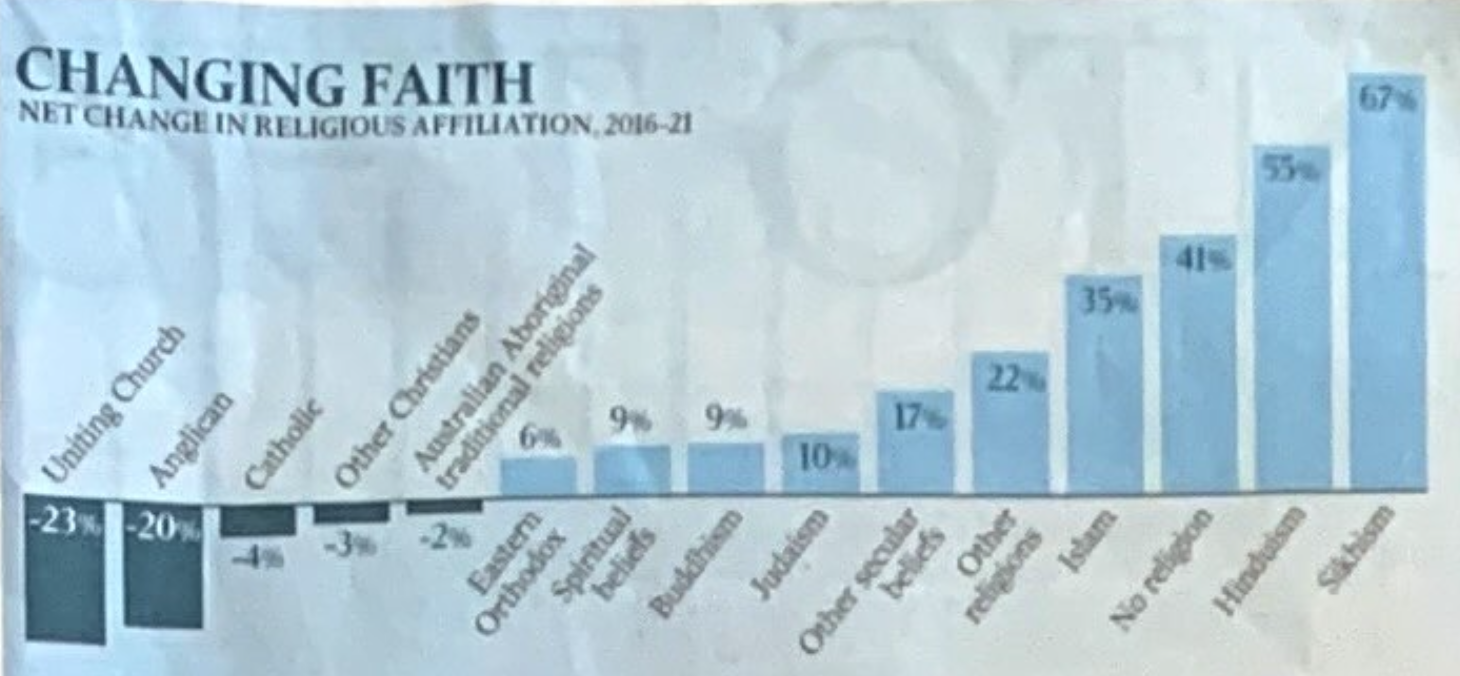 Census data says Australian "Christianity" is down to 44% - the first time below half the population. No newslflash to those of us who know the percentage of regularly practising Christians is more like 10%, salt sprinkled in the world. But this decline was headline news in May, with broadcasters assuming that this trajectory will continue into the future. But that ain't necessarily so. As Andrew Turner writes:
The Holy Spirit.
"Jesus lived and ministered while on this earth filled with, led by, empowered by, anointed by, and sent by the Holy Spirit... "The Holy Spirit is the secret to living the Christian life... "Jesus finished the work the Father gave Him to do while depending upon the very same Spirit that now lives in me and you." - Do read this Biblical foundation article, Where the Spirit of the Lord is, by Doug Holliday. Now. Read it? Good... So when we tune in to the Holy Spirit, like Jesus did, like his followers did, in a dynamic relationship, life becomes much more interesting, more alive. In fact all of life is relational - the only question is, are we participating in that relationship well or poorly. The problem for me is that, as a logical/rational Bible student/teacher, I can lean toward the rational so much that I forget about the relational reality by which I'm meant to be led. It's like studying about a loved one so much that I ignore them! When I do that with Jesus, life gets colder, harder, and I get more anxious. I focus on my causes-and-effects. Which puts a lot of pressure on my puny self, because in reality I can never know enough to successfully plan my own path. No wonder I begin to fret: "I don't want to get this wrong, I have to nut it out"... My cause-effect is simply too ignorant compared to God's oversight. Like natural selection which has a role but simply isn't powerful enough to create new kinds, cause-effect has a role, but simply isn't powerful enough to direct our paths. Only God does that. "The heart of man plans his way, but the LORD establishes his steps." (Prov 16:9) Let's not kick against the goads of reality. And worse than just me being too puny for cause-effect, my own rationality can make me blind to, and ungrateful for, God's many graces in my life. Jesus works in my life, in fact he enables me to participate in the life and work of God! ...and yet I steal his glory by crediting myself for what happens? And even worse, leaning on my rationality is me trying to put myself in control - in the place of God! Trusting myself, the original sin - Yikes! But here's the better way. Relationship is how life really works: Let the LORD direct my steps. Listen to Jesus and do what he says. Let the relational put the rational back in its place. Tune in to His promptings - "do this, trust me." Recognise and respond to the glow of his active, manifested presence. Look for him in all encounters. Seek first God's Kingdom, and everything else will follow (Mt6:33). [How? Read. & Pray. Get the Biblical worldview into your head. & Start each day listening, tuning in to the still Voice for what he might want you to do today.] Suddenly life becomes more inspired. Enchanted with real spirituality. Less my job to figure out, and more my job to seek & trust him on this adventure, and see what he does next. I work in a rational job, but I need to abide in this relational life, in the Spirit of Christ. It's better for me to teach and lead in this relational way because it is more true to real life. And so I must keep laying the foundation of Christ at the centre of all of my life & work. For it is Jesus who makes it possible for me to participate in the life of The Father. He did this through the cross and resurrection, and through the Spirit. I get to live relationally participating in his life: How deep are God's riches, and wisdom, and knowledge! How unfathomable are his decisions and unexplainable are his ways! Who has known the mind of the Lord? Or who has become his adviser?... For all things are from him, by him, and for him. Glory belongs to him forever! Amen. (Rom11:34-36) I found myself in conversation with a United Australia Party representative at the local polling booth at last Saturday's federal election. He said, "We all want freedom, right!"
"Mm, that's a value that comes from somewhere," I replied. He nodded, "it's all about goodness and kindness, right." "And those values come from somewhere too." "Yeah, err..." he stalled. I bailed him out: "Y'see, I like a lot of your values, but I'm voting Australian Christians because they are very open about where their values come from - it's the Bible, it's God, the foundations of the Judaeo-Christian worldview. So I know whatever questions they face, they will try to figure an answer from that reference point. What about the other parties - what are their reference points? Clive Palmer? Marx's Communist Manifesto? Prevailing popular opinion?" So that's my basic question for every party and representative: "What's your reference point?" |
Categories
All
Archives
July 2024
|
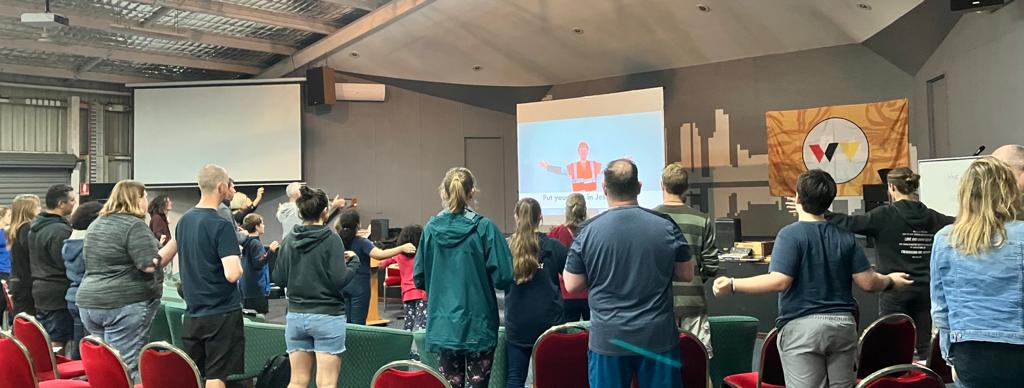
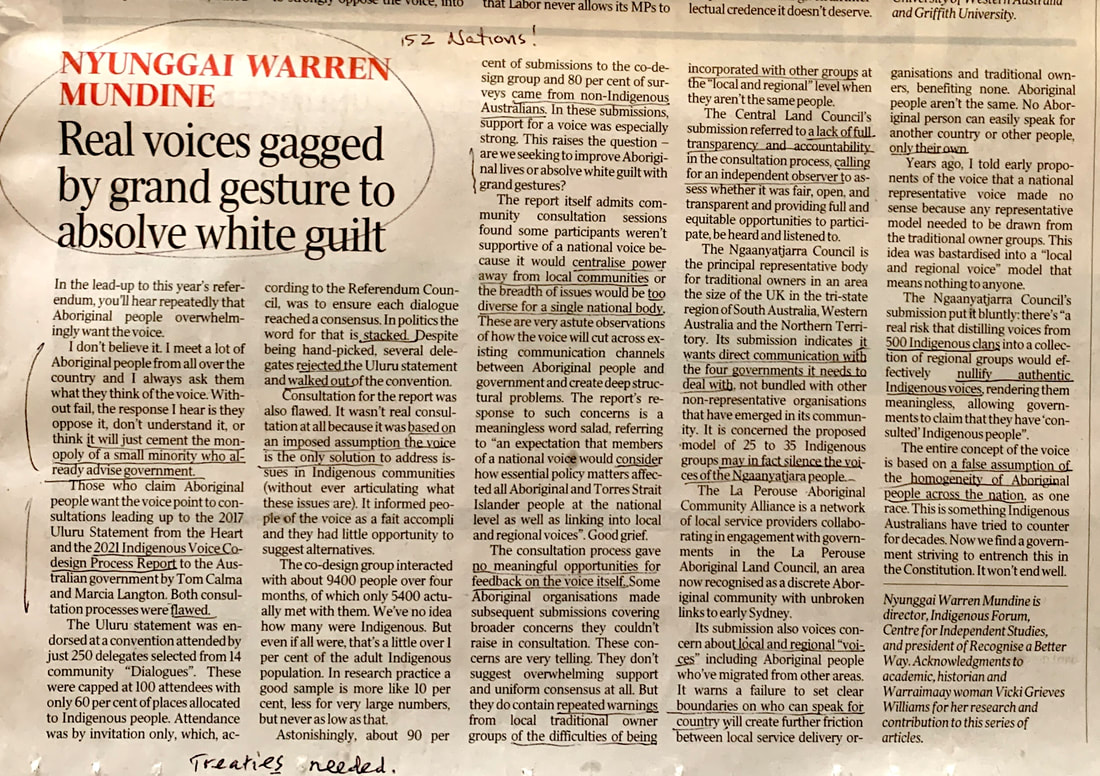
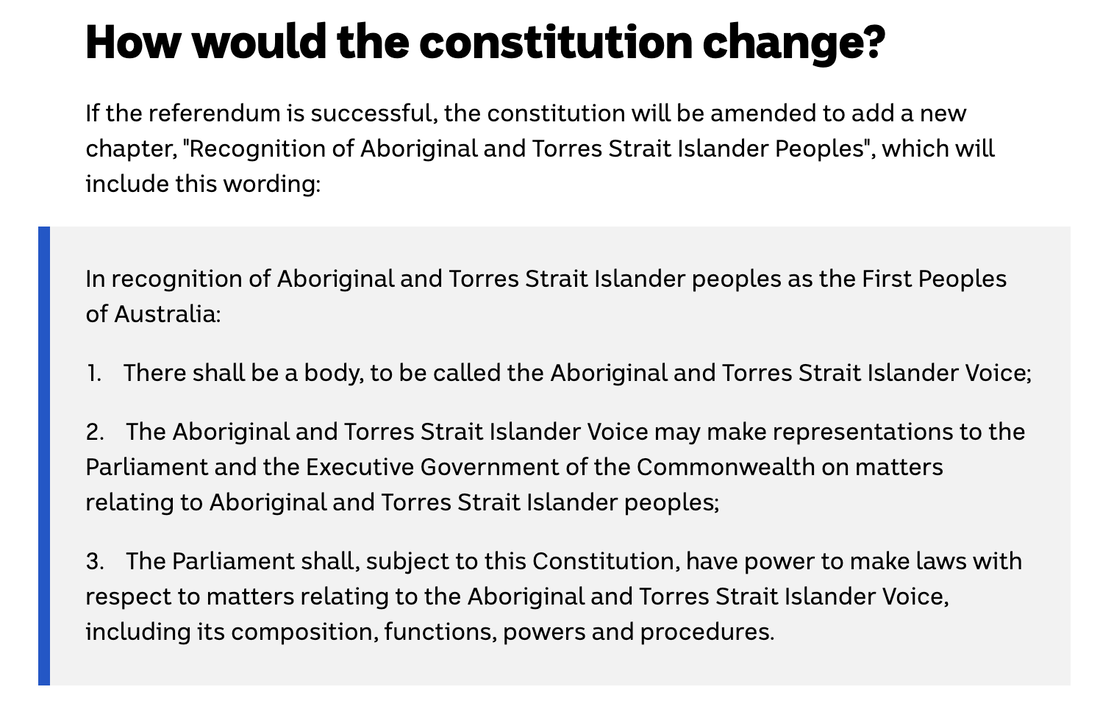

 RSS Feed
RSS Feed